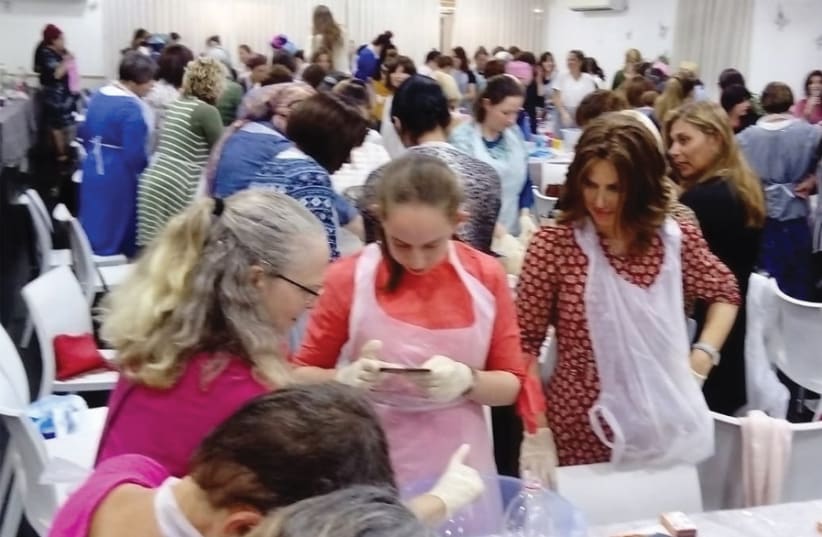Over 3,000 Chabad-Lubavitch female leaders gathered in Brooklyn, New York for the multi-day Kinus Hashluchos, the annual International Conference of Chabad-Lubavitch Women Emissaries.
Women attending come from all across the globe – from Laos, to Angola, to Uzbekistan – with the goal of increasing Jewish practice and awareness worldwide. These leaders, known as shluchot, or emissaries, will discuss the future of world Jewry, regarding both traditional and modern issues.
The conference took place from Thursday, February 13 to Monday, February 17.
Beginning on Thursday, two different programs were offered. The program recommended for first-time attendees included workshops, group sessions, farbrengen (an informal Chabad gathering), a tour of Crown Heights and a tour of the Jewish Children Museum. The program for returning participants included more advanced text-based study programs.
On Friday and Saturday, participants celebrated Shabbat together through Torah study, prayer and discussions. This was wrapped up with a farbrengen, a Havdalah ceremony and a melaveh malka, a traditional meal held at the end of Shabbat.
Sunday consisted of many workshops as well as a gala banquet. These workshops focused on combating antisemitism and fostering Jewish pride in the wake of many antisemitic attacks, including the April 2019 shooting at a Chabad center in Poway, California.
Other topics focused on in these workshops include education, inclusion, responding to loss, assisting troubled relationships, fundraising, the opioid epidemic, and mental health.
The gala included emissaries from all around the world sharing their work with the audience, a highlight of women who have recently returned to their ancestors’ tradition, young women who continue these millennia old traditions, as well as a keynote speech.
The keynote address was delivered by Dini Freundlich, co-director of Chabad in Beijing, China. Freundlich addressed the threat of COVID-19 coronavirus in China and other communities across the world, and how Chabad should help these communities.
Freundlich believes the role of shluchot is an integral one.
“As women, we have every ability to be part of the mission and dream of the Rebbe [Rabbi Menachem M. Schneerson]. We should each find areas we shine in – our creative side, social side, academic side – each woman and each of her daughters,” she told Chabad.org.
On Monday, the program concluded with a visit to the Ohel, the resting place of the Rebbe and his wife, Rebbetzin Chaya Mushka Schneerson, at the Old Montefiore Cemetery in Queens, New York. The women went with prayers and petitions in the hopes of receiving blessings, spiritual guidance, and inspiration for themselves, their families, and their communities.
In addition to this program, a parallel program run by young shluchot, daughters of Chabad emissaries, included workshops, programs and activities tailored to future female leaders with a special Shabbat ceremony spent with host families.
Another special program for Hebrew school directors and preschool directors, as well as one for people who serve on college campuses, worked to prepare leaders to impact the future generations in their specific fields.
This year’s conference is held as a tribute to the legacy of the Rebbetzin. The anniversary of her passing is 22 Shevat, corresponding to February 17 this year.
